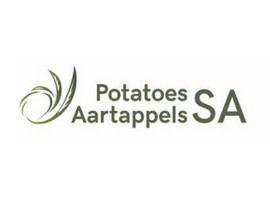Skyrocketing potato prices seen at the end of 2023 could become the new reality if water usage restrictions are imposed on farmers in the Western Cape's Sandveld region.
The Department of Water and Sanitation (DWS) has proposed a water reserve determination for the F60 and G30 catchments in the Berg-Olifants water management area in the Western Cape. Water reserves serve as a baseline of water availability in the region, which is then used to decide how much water can be extracted by all users. The DWS published the draft reserve determination in the government gazette in May. Based on the DWS's figures on water availability, they propose that water extraction by farmers be reduced by 30% to ensure that the area has sufficient water to sustain its population and environment.
This would result in 30% of the hectares under potatoes in the Sandveld taken out of production, resulting in the quadrupling of potato prices. "South Africa got a first-hand look late last year of what happens when potato production is drastically reduced. Due to load shedding, farmers planted 1600 hectares of potatoes less last year, which resulted in a 173% increase in prices when market supply consequently dipped. This took the long-term average of R42,87 per 10kg bag to R72,92 per 10kg bag.
"Should the planned restrictions to reduce agricultural water usage by 30% be implemented, production would decrease by 2100 hectares, resulting in a catastrophic increase in prices," said FP Coetzee, Potatoes SA's manager of information and regional services.
Potatoes SA supports all efforts to preserve water resources and concurs with the Department on the importance of managing water in the designated catchments. The concern however is around imposing a water reserve beyond what is necessary to achieve ecological stability. "The consequences are far-reaching. Potatoes will become unaffordable to those who depend on it for food security. This, and the consequences of decimating the local economy, would result in job losses, social unrest, migration and economic disparity," said Willie Jacobs, CEO of Potatoes SA.
Potatoes SA's statistics show that around 57 farmers planting just under 6000 hectares and employing over 6000 people would be affected by the reserve determination. The Sandveld region is one of the few areas producing potatoes year-round, contributing significantly to a stable supply across the country throughout the year. Production in neighbouring provinces is approximately 700km away, making the Western Cape fresh produce markets largely dependent on locally produced potatoes from the Sandveld region.
Local government is also set to lose out, as tax and VAT revenue could drop by around R300 million per annum.
Click here to read the full PR.
For more information:
Dirk Uys
Potatoes SA
Tel.: +27 (0)66 185 9549
Email: dirk@potatoes.co.za
